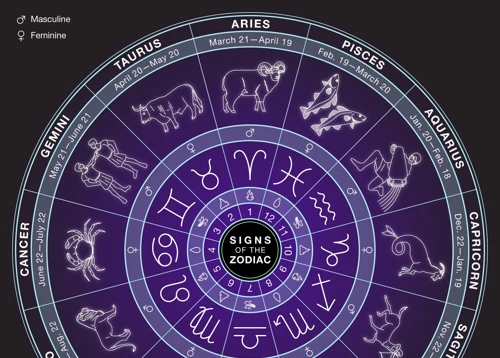Have you ever wondered if there is more to astrology than meets the eye? The astrological landscape is known for its twelve zodiac signs, which have guided our understanding of personality traits and compatibility for centuries. However, a captivating twist awaits us as we venture into the world of Ophiuchus, a forgotten sign that challenges the traditional zodiac wheel. In this article, we will explore the impact of Ophiuchus on astrology, unravel the historical and symbolic significance of this unique sign, and dive into the debates and controversies that surround it. Get ready to shift your perspective and embrace the mysteries of the ever-evolving astrological cosmos.
The Traditional Zodiac Wheel
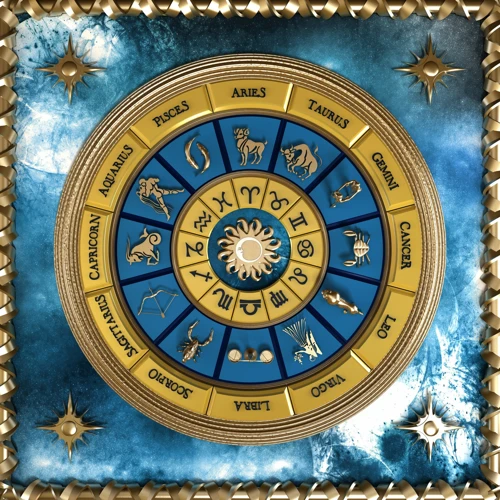
The Traditional Zodiac Wheel serves as the foundation of astrology, encompassing twelve distinct zodiac signs that are associated with different personality traits and characteristics. These signs, including Aries, Taurus, Gemini, and so on, provide a framework for understanding human behavior and interactions. Each sign has its unique qualities, ruling planets, and elemental affiliations, contributing to the complexity and diversity of the zodiac wheel. Whether it’s the assertiveness of Aries or the analytical nature of Virgo, these signs play a significant role in shaping our understanding of ourselves and others. While the zodiac wheel has long been regarded as a reliable guide, the emergence of Ophiuchus challenges its traditional structure and raises questions about the accuracy and completeness of astrological interpretations. To delve deeper into the Ophiuchus paradox and its implications for astrology, click here!
Overview of the Zodiac Signs
- Aries: The first sign of the zodiac, Aries is known for their assertive and confident nature. They are natural-born leaders, passionate about pursuing their goals and initiating new projects.
- Taurus: Taureans are known for their practicality and determination. They value stability and are often associated with a love for beauty, indulgence, and material comforts.
- Gemini: Geminis are curious and adaptable individuals. They are known for their quick wit, excellent communication skills, and ability to effortlessly socialize in any situation.
- Cancer: Represented by the crab, Cancerians are nurturing and compassionate beings. They are deeply intuitive, loyal, and known for their strong emotional bonds with family and loved ones.
- Leo: Leos are charismatic and confident individuals, often considered the kings and queens of the zodiac. They possess a natural flair for drama, creativity, and love being in the spotlight.
- Virgo: Virgos are meticulous, analytical, and have an eye for detail. They are highly organized, practical, and known for their ability to provide practical solutions for any problem.
- Libra: Known for their love of balance and harmony, Libras are diplomatic and fair-minded individuals. They seek justice, equality, and value their relationships deeply.
- Scorpio: Passionate and intense, Scorpios are known for their deep emotional connection and possessiveness. They are strong-willed individuals who embrace transformation and seek the truth.
- Sagittarius: Sagittarians are adventurers and free spirits. They have a thirst for knowledge, love to explore new territories, and are known for their optimistic nature.
- Capricorn: Capricorns are ambitious and disciplined individuals. They are known for their leadership qualities, practicality, and strong work ethic.
- Aquarius: Aquarians are independent and forward-thinking individuals. They are known for their humanitarian nature, individuality, and ability to think outside the box.
- Pisces: Pisceans are imaginative and empathetic individuals. They are deeply intuitive, compassionate, and have a strong emotional connection with their spiritual side.
To explore the deep symbolism and characteristics of each zodiac sign, you can dive into Ophiuchus’s historical origins and symbolism or understand the reaction of astrologers to the inclusion of Ophiuchus by reading their perspective. Each sign brings its own unique energy and qualities to the zodiac wheel, contributing to the rich tapestry of astrological interpretations that have guided our understanding of human nature for centuries.
Alignment with Astronomical Constellations
The alignment of zodiac signs with astronomical constellations has long been a point of fascination and controversy in the realm of astrology. Traditionally, each zodiac sign has been associated with a specific constellation in the night sky, based on the apparent path of the Sun throughout the year. For instance, Aries is linked to the constellation of the same name, Taurus to the constellation of Taurus, and so on. This alignment has provided a visual representation of the zodiac, connecting celestial patterns with human personality traits. However, it is worth noting that over time, due to a phenomenon known as “precession,” there has been a gradual shift in the alignment of the signs with their corresponding constellations. This means that the dates associated with the zodiac signs may no longer accurately coincide with the actual placement of the Sun relative to the constellations. As a result, some argue that the traditional alignment is no longer astronomically precise and that adjustments are needed. This ongoing debate underscores the intricacies of astrology and the need to explore the evolving astrological landscape with an open mind.
Ophiuchus: The Forgotten Sign
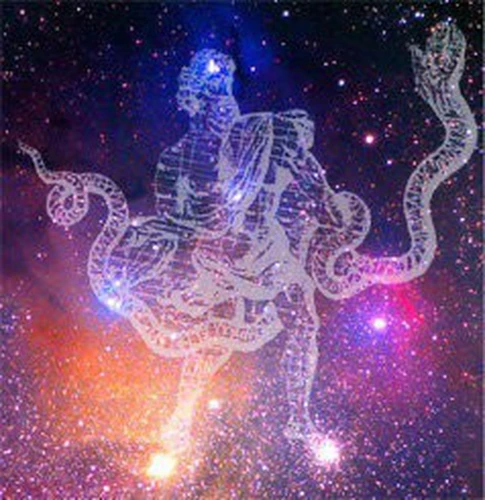
Ophiuchus, often referred to as “The Forgotten Sign,” holds a fascinating place in the astrological world. Unlike the well-known twelve zodiac signs, Ophiuchus has been overlooked and excluded from traditional astrological frameworks for centuries. This omission is ironic considering that Ophiuchus is a constellation associated with healing and wisdom. Historically, Ophiuchus has been associated with the Greek mythological figure Asclepius, known for his exceptional healing abilities. Symbolized by a serpent held by a man, Ophiuchus embodies traits of empathy, intuition, and a deep desire to bring balance and harmony into the world. However, due to its absence in popular astrology, the characteristics and influence of Ophiuchus have largely eluded mainstream understanding. To unravel the historical origins and symbolism of Ophiuchus, take a journey here and embrace the enigmatic wonder of this forgotten sign.
Historical Perspective
The historical perspective of Ophiuchus brings us back to ancient times, where its existence as a zodiac sign can be traced. In ancient Greek mythology, Ophiuchus is associated with the god Apollo and the famous healer, Asclepius. Asclepius was known for his exceptional healing abilities and was often depicted carrying a staff with a serpent coiled around it, which later became the symbol of medicine. This symbol is still used today in the medical field. Ophiuchus also finds its roots in Babylonian astrology, where it was considered a significant constellation. However, over time, the inclusion of Ophiuchus in the zodiac wheel was overlooked and forgotten, possibly due to the desire to maintain a balance of twelve signs. Despite its historical significance, the omission of Ophiuchus from the traditional zodiac system has sparked debates and discussions within the astrological community. To learn more about the historical origins and symbolism of Ophiuchus, click here!
Characteristics and Symbolism
Ophiuchus, the often-overlooked thirteenth zodiac sign, possesses a unique set of characteristics and symbolism. Represented by the symbol of a serpent bearer or healer, Ophiuchus embodies traits that set it apart from the other zodiac signs. Those born under this sign are believed to be natural healers, with a deep sense of intuition and knowledge about the human body and spirituality. Ophiuchus individuals are known for their transformative and regenerative abilities. They have a strong desire to bring balance and harmony to the world around them.
Symbolically, this sign is associated with the ancient Greek god Asclepius, the god of healing and medicine. The serpent coiled around the staff, known as the Rod of Asclepius, is a well-known symbol of Ophiuchus and represents healing and rejuvenation. Ophiuchus is often connected with wisdom, intuition, and a quest for higher knowledge. Individuals born under this sign are believed to possess a deep understanding of the mysteries of life and have the potential for profound spiritual growth.
While Ophiuchus may have been forgotten or overlooked in traditional astrology, its characteristics and symbolism invite us to explore new dimensions of our own personalities and spiritual journeys. This sign challenges us to embrace healing, transformation, and the pursuit of higher wisdom in our lives. It adds an intriguing and mysterious element to the astrological landscape, expanding our understanding of the human experience.
The Discovery and Controversy
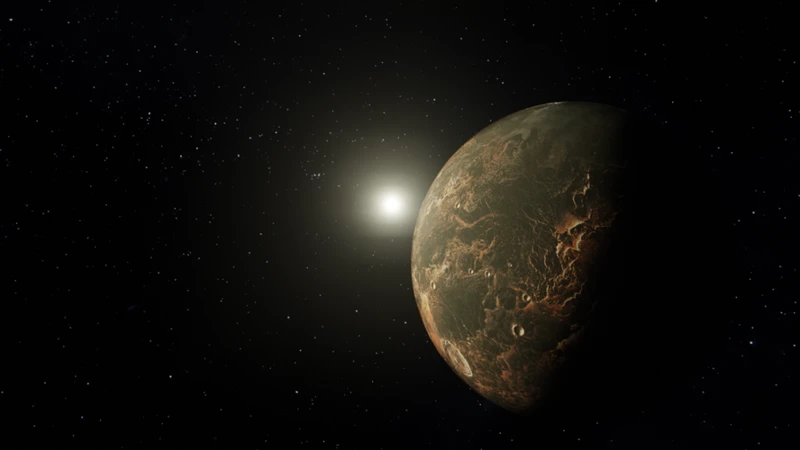
The discovery of Ophiuchus and its subsequent integration into astrology has sparked considerable controversy and debate within the astrological community. Ophiuchus, also known as the serpent bearer, is an ancient constellation that lies along the ecliptic, the path of the Sun. Its inclusion as a thirteenth zodiac sign challenges the long-standing belief in the twelve-sign system, leading to conflicting opinions among astrologers and enthusiasts alike. Some argue that the addition of Ophiuchus provides a more accurate reflection of celestial alignments, while others vehemently oppose its inclusion, citing the disruption of established astrological interpretations. This controversy has given rise to an ongoing dialogue as astrologers grapple with the implications and ramifications of Ophiuchus. To delve deeper into the reactions and analyses surrounding Ophiuchus’ integration, click here!
The Ophiuchus Constellation
The Ophiuchus Constellation holds a significant place in the study of astronomy and astrology. The constellation itself is located near the celestial equator and is associated with the symbol of a serpent holder. Ophiuchus is often depicted as a figure holding a snake, symbolizing healing and wisdom. Its name originates from the Greek word “Ophis,” meaning snake. This constellation is situated between Scorpius and Sagittarius, and it is sometimes referred to as the “13th zodiac sign.”
The Ophiuchus Constellation comprises several notable stars, including Rasalhague, the brightest star in the constellation. It is an intriguing mix of binary stars, variable stars, and even a few exoplanets. With its rich celestial features, the Ophiuchus Constellation has fascinated astronomers and astrologers alike. Its presence in the zodiac lineup has prompted discussions and debates about its role and influence on the traditional zodiac wheel.
To explore the historical origins and symbolism of the Ophiuchus Constellation in detail, including its connections to astrology and its impact on the zodiac signs, you can delve into our dedicated article here.
Discrepancies in Astrological Systems
Discrepancies in astrological systems have long been a subject of debate and intrigue. The addition of Ophiuchus to the zodiac wheel highlights the inherent complexities and inconsistencies within astrology. One major discrepancy lies in the varying interpretations and methods employed by astrologers around the world. Different astrological systems, such as Western astrology, Vedic astrology, and Chinese astrology, utilize distinct calculations and charts that may yield different results and interpretations. These discrepancies can lead to conflicting readings and predictions, further fueling the debates surrounding the accuracy and validity of astrological systems. Additionally, the shift from a geocentric to a heliocentric model of the solar system has also brought about discrepancies in astrological calculations, as certain systems may not account for this change. Such disparities undermine the notion of a universal, objective astrological system and highlight the subjectivity and fluidity inherent in astrology. With Ophiuchus amplifying these discrepancies, it becomes evident that astrology is a multifaceted discipline with room for interpretation and adaptation.
The Impact on Astrology
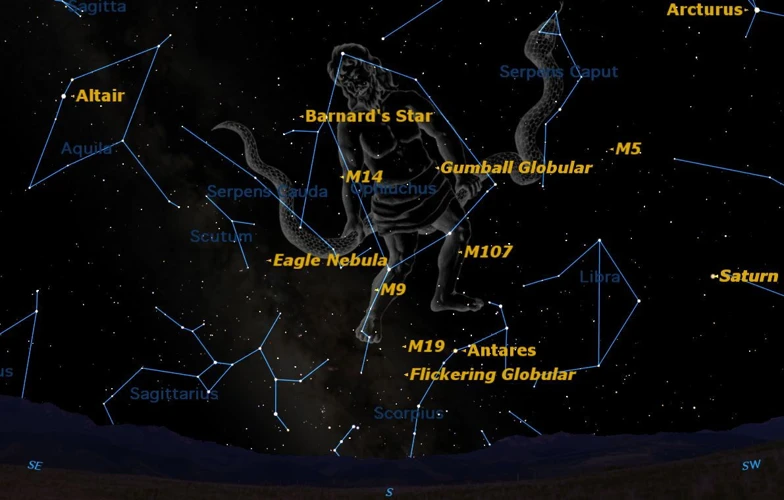
The inclusion of Ophiuchus in the zodiac wheel has had a profound impact on the field of astrology. With its arrival, the entire landscape of astrological readings and interpretations has undergone a significant shift. Astrologers now consider the traits and characteristics associated with Ophiuchus, further enriching the complexity and depth of astrological profiles. Additionally, the addition of Ophiuchus has led to a reinterpretation of the zodiac sign dates, as some individuals discover that they fall under this newly recognized sign. This has prompted individuals to question their identities and explore the unique qualities and symbolism of Ophiuchus. The expansion of the zodiac wheel has also introduced a new layer of compatibility and interactions between Ophiuchus and the other signs, sparking curiosity and exploration in the realm of relationships and personal dynamics. As astrology continues to evolve, the impact of Ophiuchus serves as a reminder that there is always more to discover and explore within the cosmic realm.
The Addition of Ophiuchus
The addition of Ophiuchus to the zodiac wheel has sent shockwaves through the astrological community, challenging the long-held belief in the twelve zodiac signs. Ophiuchus, also known as the serpent bearer, represents a thirteenth zodiac sign that was overlooked in traditional astrological systems. This newfound inclusion has triggered a reassessment of astrological charts and readings, forcing astrologers to incorporate the characteristics and symbolism associated with Ophiuchus into their interpretations. Ophiuchus is often described as a healer and a seeker of knowledge, possessing traits such as wisdom, intuition, and a deep connection to the natural world. Individuals born under the Ophiuchus sign are said to possess magnetic personalities, with a strong desire to make a positive impact on the world. The addition of Ophiuchus has sparked debates among astrologers and enthusiasts, with some embracing its inclusion as an opportunity for expanded insight and understanding, while others resist the change, arguing that it disrupts the established astrological framework. The recognition of Ophiuchus offers an exciting and transformative shift within astrology, encouraging a broader perspective and a deeper exploration of the celestial influences that shape our lives.
Reinterpretation of Zodiac Sign Dates
Reinterpretation of Zodiac Sign Dates has been a major consequence of the introduction of Ophiuchus into the astrological landscape. With the addition of Ophiuchus, the traditional dates associated with each zodiac sign have been called into question and reevaluated. This reinterpretation stems from the alignment of the zodiac signs with the actual astronomical constellations in the night sky. For instance, individuals who were once considered to be born under the sign of Sagittarius may now find themselves identified as Ophiuchus, causing a shift in their astrological identity and characteristics. To illustrate the reinterpretation, let’s take a look at the revised zodiac sign dates:
- Aquarius: January 20 – February 18
- Pisces: February 19 – March 20
- Aries: March 21 – April 19
- Taurus: April 20 – May 20
- Gemini: May 21 – June 20
- Cancer: June 21 – July 22
- Leo: July 23 – August 22
- Virgo: August 23 – September 22
- Libra: September 23 – October 22
- Scorpio: October 23 – November 21
- Ophiuchus: November 22 – December 21
- Sagittarius: December 22 – January 19
This reinterpretation of zodiac sign dates has caused a stir among astrology enthusiasts, astrology-dependent industries, and those who closely identify with their zodiac sign. The shift challenges the familiarity and understanding we have developed over time, urging us to reevaluate our own astrological identities along with the traits and characteristics associated with each sign. It is important to note that while some may embrace the revised sign dates, others may continue to adhere to the traditional zodiac wheel. The impact of this reinterpretation goes beyond the realm of astrology, raising questions about the does this mean for our overall understanding of ourselves and the cosmic forces that shape our lives.
Shift in Astrological Readings
As the inclusion of Ophiuchus shakes the foundations of astrology, there has been a significant shift in astrological readings and interpretations. The addition of Ophiuchus to the zodiac wheel introduces a thirteenth sign, challenging the established framework that has been followed for centuries. This shift prompts astrologers and enthusiasts to reconsider the traditional meanings and associations attached to each sign. The characteristics and traits commonly attributed to each zodiac sign may be reassessed and redefined to accommodate the influence of Ophiuchus. This shift in astrological readings requires a reevaluation of compatibility charts and horoscopes, as the dynamics between individuals change with the inclusion of this new sign. Astrologers now need to analyze the intricate relationships and interactions between Ophiuchus and the other twelve signs to provide accurate and comprehensive readings. This shift demands a willingness to explore new perspectives and adapt to the evolving astrological landscape. It opens up exciting possibilities for those who seek a fresh understanding of themselves and their place in the universe.
Embracing the Ophiuchus Sign
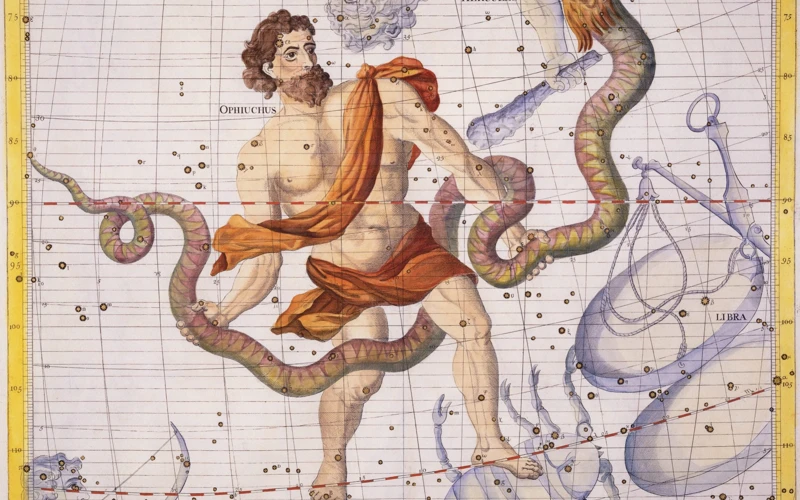
Embracing the Ophiuchus Sign opens up a world of untapped potential and unique insights. Understanding the traits associated with Ophiuchus is crucial for comprehending its compatibility and interactions with other zodiac signs. Ophiuchus is often associated with wisdom, healing, and transformation, making individuals born under this sign resilient and charismatic. It is believed that Ophiuchus possesses a deep understanding of the mysteries of life and possesses the ability to bring about positive change. When exploring compatibility with other signs, Ophiuchus individuals tend to complement and challenge their counterparts, fostering growth and harmony in relationships. To delve deeper into Ophiuchus traits and its compatibility with other signs, click here!
Understanding Ophiuchus Traits
Understanding Ophiuchus Traits is key to unraveling the enigmatic nature of this forgotten sign. As the Serpent Bearer, Ophiuchus brings forth an intriguing set of characteristics that differentiate it from the rest of the zodiac. Here are some prominent traits associated with Ophiuchus:
1. Intuitive and Wise: Ophiuchus individuals have a heightened sense of intuition and possess a deep well of wisdom. They are often seen as natural healers and are drawn towards spiritual and metaphysical pursuits.
2. Unconventional and Independent: Ophiuchus is known for its non-conformist nature. Those born under this sign have a strong independent streak and are not afraid to challenge societal norms. They have a unique perspective and often march to the beat of their own drum.
3. Charismatic and Magnetic: Ophiuchus individuals possess a magnetic charm that draws people towards them. They exude confidence and have a natural ability to captivate others with their presence.
4. Seekers of Truth: Ophiuchus individuals have a deep thirst for knowledge and truth. They are constantly seeking answers to life’s mysteries and have a philosophical approach to understanding the world around them.
5. Passionate and Intense: People born under Ophiuchus are known for their intense emotions and passions. They throw themselves wholeheartedly into their pursuits and relationships, often experiencing life with a fiery intensity.
6. Rebellious and Idealistic: Ophiuchus individuals have a rebellious streak and often fight for causes they believe in. They are driven by their ideals and have a strong sense of justice, pushing against injustices and striving for positive change.
It’s important to remember that while Ophiuchus traits might resonate with some individuals, astrology is multifaceted, and personal experiences can vary. Understanding these traits can help shed light on the unique characteristics of Ophiuchus and provide a deeper appreciation for the intricacies of astrological diversity.
Compatibility and Interactions with Other Signs
When it comes to compatibility and interactions with other signs, Ophiuchus adds an intriguing dynamic to the astrological landscape. Known for their transformative and healer-like qualities, those born under the Ophiuchus sign possess a unique energy that can both challenge and complement other zodiac signs. Here is a breakdown of how Ophiuchus interacts with different signs:
1. Aries (March 21 – April 19): Ophiuchus’s calm and introspective nature can offer a grounding influence to fiery Aries, fostering a sense of balance and moderation in their relationship.
2. Taurus (April 20 – May 20): Ophiuchus’s intense focus and determination can align well with Taurus’s steadfast nature, creating a powerful and enduring partnership based on mutual support and shared goals.
3. Gemini (May 21 – June 20): Ophiuchus’s deep and reflective nature may intrigue Gemini, who values intellectual stimulation and variety. Their connection can lead to thought-provoking conversations and a sharing of diverse perspectives.
4. Cancer (June 21 – July 22): Ophiuchus’s healing energy and nurturing qualities can provide a sense of emotional security for sensitive Cancer. They can form a harmonious bond built on understanding and empathy.
5. Leo (July 23 – August 22): Ophiuchus’s intensity and magnetic presence can both challenge and captivate Leo. They may need to find a balance between Ophiuchus’s introspection and Leo’s desire for attention and recognition.
6. Virgo (August 23 – September 22): Ophiuchus’s meticulous and detail-oriented approach can resonate well with Virgo’s practicality. They may form a strong partnership based on organization, precision, and shared goals.
7. Libra (September 23 – October 22): Ophiuchus’s ability to see multiple perspectives can complement Libra’s desire for fairness and harmony. They may find themselves forming a balanced and equitable partnership.
8. Scorpio (October 23 – November 21): Ophiuchus and Scorpio share transformative energy, making this combination intense and powerful. They may embark on a profound journey of self-discovery together.
9. Sagittarius (November 22 – December 21): Ophiuchus’s deep introspection may collide with Sagittarius’s love for adventure and exploration. However, if they embrace each other’s differences, they can learn and grow together.
10. Capricorn (December 22 – January 19): Ophiuchus’s healing energy can provide support and stability to Capricorn’s ambitious nature. Together, they can create a harmonious blend of success and emotional well-being.
11. Aquarius (January 20 – February 18): Ophiuchus’s transformative energy can inspire and challenge the independent and visionary Aquarius. Their connection can lead to personal growth and a mutual desire for change.
12. Pisces (February 19 – March 20): Ophiuchus’s healing energy and intuitive nature resonate well with sensitive Pisces. They can form a deep emotional bond and engage in a spiritual journey together.
It’s important to note that compatibility in astrology extends beyond just the sun signs. Factors such as moon signs, rising signs, and personal planetary placements also influence the dynamics between individuals. Exploring these aspects can provide further insights into the compatibility and interactions with Ophiuchus and other signs.
Public Response and Debates

The addition of Ophiuchus to the zodiac wheel has sparked a wide range of public responses and debates within the astrological community. Some individuals have embraced the inclusion of Ophiuchus as a breath of fresh air, seeing it as an opportunity to explore new dimensions of their personality and compatibility with other signs. They view Ophiuchus as a significant revelation that adds depth and complexity to astrological readings. On the other hand, there are those who vehemently reject Ophiuchus, arguing that it disrupts the established order of the zodiac and undermines the credibility of astrology as a whole. The debates surrounding Ophiuchus have also spilled over into scientific circles, with skeptics criticizing the lack of empirical evidence to support astrological claims. These heated discussions and contrasting perspectives continue to fuel the ongoing discourse about the relevance and accuracy of the zodiac wheel. To gain further insight into the scientific vs. astrological perspectives on Ophiuchus, click here!
Acceptance and Rejection
Acceptance and rejection are two opposing reactions that have emerged in response to the inclusion of Ophiuchus in the zodiac wheel. On one hand, there are those who readily embrace the addition of this forgotten sign, considering it an exciting expansion of astrological knowledge. They see Ophiuchus as an opportunity to explore new facets of their personalities and expand their understanding of astrology. These individuals argue that Ophiuchus brings a fresh perspective and adds depth to the zodiac system.
On the other hand, there are skeptics and traditionalists who vehemently reject the inclusion of Ophiuchus. They argue that the zodiac has been established for centuries and any attempts to alter its structure are merely attempts to dilute or commodify astrology. These individuals believe that Ophiuchus disrupts the balance and harmony of the zodiac wheel, causing confusion and undermining the credibility of astrology as a whole. They argue that the twelve zodiac signs have stood the test of time and should remain unchanged.
The acceptance and rejection of Ophiuchus have sparked heated debates among astrologers, enthusiasts, and the general public. These debates reflect the inherent tension between embracing new knowledge and preserving established traditions. While some see Ophiuchus as an exciting addition that enhances our astrological understanding, others view it as an unnecessary deviation from the tried and true.
At its core, the acceptance and rejection of Ophiuchus reveal the diverse perspectives and beliefs within the astrological community. This divide highlights the ever-evolving nature of astrology and the willingness (or resistance) to adapt and incorporate new information. Whether one embraces or rejects Ophiuchus ultimately comes down to personal beliefs and how open one is to challenging and expanding existing astrological frameworks.
Scientific vs. Astrological Perspectives
When it comes to the debate between scientific and astrological perspectives, there are passionate arguments on both sides. Scientific skeptics assert that astrology is nothing more than a pseudoscience, lacking empirical evidence and rigorous testing. They argue that personality traits and compatibility cannot be accurately determined by celestial alignments and star positions. Scientific explanations emphasize the role of psychology and cognitive biases in shaping individuals’ belief systems, highlighting the Barnum effect, where general statements are accepted as specific to an individual. On the other hand, astrologers defend the ancient art and its validity, highlighting its historical significance and the intuitive connection between celestial bodies and human experiences. They argue that astrology provides a unique lens through which to view human behavior and can offer valuable insights into personal growth and self-awareness. Despite the skepticism from the scientific community, astrology continues to captivate and intrigue individuals around the world, fueling ongoing debates and discussions about the nature of the cosmos and our place within it. To dive more into the topic and explore the nuances of these perspectives, click here!
Alternative Zodiac Systems
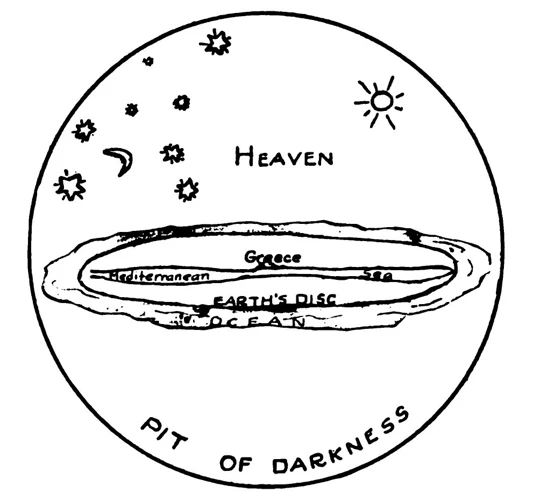
While the traditional zodiac system is widely recognized and followed, it is not the only system used in astrology. Alternative zodiac systems offer different perspectives and methodologies for interpreting celestial alignments and their impact on human lives. One such system is the Sidereal Zodiac, which aligns the zodiac signs with their corresponding constellations in the sky, taking into account the precession of the Earth’s axis. This approach emphasizes the accurate astronomical placement of the signs, providing a more precise astrological reading. In contrast, the Tropical Zodiac, which is the basis of the traditional zodiac wheel, focuses on the seasons and is linked to the position of the Sun at the vernal equinox. Exploring other astrological systems like Vedic astrology or Chinese zodiac can also provide valuable insights into personality traits, life cycles, and compatibility. These alternative systems enrich astrology by offering diverse perspectives and opening doors to understanding the celestial influences in different ways.
Sidereal Zodiac vs. Tropical Zodiac
Sidereal Zodiac vs. Tropical Zodiac:
Sidereal Zodiac and Tropical Zodiac are two distinct systems used in astrology to determine the alignment of the zodiac signs with the stars and the seasons, respectively. Here, we will explore the key differences between these two approaches:
1. Basis of Calculation:
– Sidereal Zodiac: The Sidereal Zodiac calculates the position of the zodiac signs based on the actual placement of the constellations in the night sky. This system takes into account the precession of Earth’s axis and considers the slight shift in the star patterns over time.
– Tropical Zodiac: In contrast, the Tropical Zodiac determines the zodiac signs based on the seasons. It divides the year into four equal quarters, with each sign coinciding with the start of a particular season, such as Aries for the spring equinox.
2. Reference Point:
– Sidereal Zodiac: The reference point in the Sidereal Zodiac is the fixed star Spica, located in the constellation of Virgo. Astrologers who follow this system believe that the position of the zodiac signs should be aligned with the backdrop of the actual constellations.
– Tropical Zodiac: The Tropical Zodiac, on the other hand, uses the vernal equinox as its reference point. It marks the beginning of the astrological year and considers the tilt of Earth’s axis in relation to the Sun during the equinoxes.
3. Prevalence and Cultural Variations:
– Sidereal Zodiac: The Sidereal Zodiac is predominantly followed by astrologers in Vedic and Eastern astrological traditions. It is deeply rooted in ancient Hindu astrology and takes into account the significance of fixed stars and lunar mansions.
– Tropical Zodiac: The Tropical Zodiac is more commonly used in Western astrology and is widely recognized and practiced in Western cultures. It places greater emphasis on the relationship between the zodiac signs and the changing seasons.
4. Interpretation of Zodiac Signs:
– Sidereal Zodiac: As a result of its alignment with the constellations, the Sidereal Zodiac is believed to provide more accurate predictions and personality assessments. Its followers argue that the positions of the stars have a direct influence on an individual’s destiny.
– Tropical Zodiac: The Tropical Zodiac, while not directly aligned with the current positions of the stars, places greater importance on the symbolic meanings attributed to the signs and their relationship with the changing seasons. It focuses on psychological interpretations and personal growth.
The Sidereal Zodiac and the Tropical Zodiac offer different perspectives on astrology. While the Sidereal Zodiac aligns the signs with the actual constellations, the Tropical Zodiac correlates them with the changing seasons. Both systems have their own merits, and the choice between them depends on cultural traditions, personal beliefs, and astrological preferences.
Exploring Other Astrological Systems
Exploring Other Astrological Systems opens up a fascinating realm of diverse perspectives and approaches to understanding the cosmos. While the traditional Western astrology system, based on the tropical zodiac, is widely popular, there are alternative systems worth exploring. One such system is the Sidereal Zodiac, which takes into account the precession of the Earth’s axis and aligns the zodiac signs with the actual positions of the constellations. This shift in perspective can lead to a different interpretation of an individual’s astrological chart. The Sidereal Zodiac is widely used in Vedic astrology, practiced in ancient India. It offers unique insights into personality traits, life events, and compatibility. Another intriguing alternative is the Chinese zodiac, which is based on a twelve-year cycle represented by different animal signs. This system considers both the year and month of birth, providing a nuanced understanding of one’s personality and compatibility with others. Additionally, the Mayan astrology system, based on the ancient Mesoamerican civilization, offers its own unique calendar and zodiac system. It includes different signs associated with animals, elements, and deities, offering a rich and ancient perspective on the celestial influences. Exploring these alternative astrological systems allows individuals to expand their horizons, gain fresh insights, and embrace the diversity of human understanding of the stars and their impact on our lives.
Personal Reflections and Adaptation
As individuals discover and explore the influence of Ophiuchus in their astrological profiles, personal reflections and adaptation become crucial. The addition of Ophiuchus to the zodiac wheel challenges our preconceived notions and invites us to reassess our identities and interpersonal dynamics. For some, embracing Ophiuchus as a part of their astrological makeup can lead to a deeper understanding of their own unique traits and strengths. Others may find themselves questioning their compatibility with other signs and reassessing their relationships. Making sense of the Ophiuchus influence requires introspection, open-mindedness, and a willingness to adapt our beliefs. Incorporating Ophiuchus into our astrological framework may enable us to uncover new layers of self-awareness and accept the ever-evolving nature of astrology. It is a journey of personal growth and adaptation that invites us to question and redefine our place within the cosmic tapestry.
Impact on Individual identities
The addition of Ophiuchus to the zodiac wheel has had a profound impact on individual identities and self-perception. People who discover that they fall under the Ophiuchus sign may experience a shift in their understanding of themselves and their place in the world. Ophiuchus is characterized by traits such as wisdom, healing abilities, and a deep connection to spirituality. Individuals who identify with Ophiuchus may come to embrace these qualities and explore them further in their personal and professional lives. This newfound self-awareness can lead to a greater sense of purpose and fulfillment, as individuals align their actions and decisions with the unique attributes of Ophiuchus. The inclusion of Ophiuchus allows for a more nuanced understanding of personal strengths and weaknesses, as individuals navigate the complex interplay between their sun sign and their Ophiuchus traits. By embracing the influence of Ophiuchus, individuals can tap into a deeper understanding of themselves and unlock their true potential.
Making Sense of the Ophiuchus Influence
Making sense of the Ophiuchus influence requires a new lens through which to view astrology. With the addition of this forgotten sign, astrologers and enthusiasts alike have grappled with understanding its impact on the zodiac wheel and how it interacts with the other signs. Ophiuchus possesses its unique set of traits, symbolizing healing, wisdom, and the pursuit of knowledge. Those born under the Ophiuchus sign are said to be natural healers, deeply intuitive, and driven by a quest for truth. Consequently, the introduction of Ophiuchus prompts a reevaluation of individual identities and how they align with the new sign. It encourages individuals to explore their potential as healers, guides, and seekers of wisdom.
The compatibility and interactions between Ophiuchus and the other zodiac signs are also at the forefront of discussions. As this new sign is integrated into the astrological tapestry, astrologers are working to determine how Ophiuchus interacts with the established signs. Some believe that Ophiuchus enhances the qualities of neighboring signs, creating a dynamic blend of energies and potential for growth. On the other hand, there are those who question how the inclusion of Ophiuchus affects compatibility readings and the existing understanding of relationships between the original twelve signs.
The Ophiuchus influence has sparked a wave of personal reflections and adaptations. Individuals who discover that their birthdates fall under the Ophiuchus sign may experience a reevaluation of their identity and characteristics. It can be perplexing to realize that there is another sign that may better align with one’s personality traits, challenging the long-held belief in being represented solely by the original twelve zodiac signs. As people navigate this newfound influence, they may find themselves exploring their true potential, embracing the healing and intuitive abilities associated with Ophiuchus, and incorporating its energy into their lives.
While making sense of the Ophiuchus influence may seem perplexing at first, it presents an opportunity for growth and self-discovery. It encourages us to question traditional astrological systems and open ourselves to new possibilities. Whether one fully embraces Ophiuchus as an integral part of the zodiac wheel or approaches it with skepticism, its inclusion in astrological conversations has undoubtedly sparked curiosity and expanded the interpretation of astrology. By embracing the essence of Ophiuchus and exploring its influence, individuals can embark on a journey of self-exploration, shedding light on new facets of their identities and unlocking hidden potential.
Conclusion
In conclusion, the inclusion of Ophiuchus in the astrological landscape has sparked debates, controversies, and a seismic shift in the way we view the zodiac wheel. We have delved into the historical origins and symbolism of Ophiuchus, uncovering its status as a forgotten sign with significant astrological implications. The discovery of Ophiuchus has challenged the alignment of zodiac signs with astronomical constellations and raised questions about the accuracy of traditional astrological systems. As astrologers grapple with the impact of Ophiuchus, they have had to reconsider the dates and characteristics of each zodiac sign, prompting a reinterpretation of astrological readings and predictions. The public response to Ophiuchus has been a mix of acceptance and rejection, with some embracing the addition of a new sign and others remaining skeptical. The scientific community has also weighed in, highlighting the differences between the sidereal and tropical zodiac systems, while alternative astrological systems provide further avenues for exploring the influence of Ophiuchus. Amidst these debates, individuals are left to reflect on the impact of Ophiuchus on their own identities and make sense of its influence on their lives. While the mysteries and complexities of the Ophiuchus paradox continue to captivate our imaginations, it is clear that the astrological landscape is ever-evolving, challenging our perceptions and inviting us to embrace new perspectives.
Frequently Asked Questions
What are the characteristics associated with each zodiac sign?
Each zodiac sign has its unique set of characteristics and traits. For example, Aries is known for being confident and enthusiastic, while Taurus is associated with practicality and reliability. Gemini is known for its curiosity and adaptable nature, while Cancer is considered nurturing and empathetic. This pattern continues throughout the zodiac wheel, with each sign embodying specific qualities.
How are the zodiac signs aligned with astronomical constellations?
The zodiac signs are traditionally aligned with specific astronomical constellations. However, due to the precession of the Earth’s axis, the alignment has shifted over time. This means that the zodiac signs of today no longer directly correspond to the constellations they were originally named after.
What is Ophiuchus and its historical significance in astrology?
Ophiuchus is a lesser-known zodiac sign, also known as the “Serpent Bearer.” It has historical significance as it was left out of the traditional zodiac wheel but has existed as a constellation for centuries. Ophiuchus represents knowledge, healing, and wisdom.
Why was Ophiuchus not included in the traditional zodiac wheel?
Ophiuchus was not included in the traditional zodiac wheel mainly due to the 12-sign system’s alignment with equinoxes and solstices. The inclusion of Ophiuchus would disrupt this system as it falls within the ecliptic, the apparent path of the Sun throughout the year.
How does the discovery of Ophiuchus impact astrology as a whole?
The discovery of Ophiuchus has sparked debates and controversy within the astrological community. While some astrologers argue for its inclusion in the zodiac wheel, others prefer maintaining the existing system. This discovery challenges the foundations of astrology and invites a reconsideration of astrological interpretations.
What are the traits associated with Ophiuchus?
Ophiuchus is associated with traits such as healing, wisdom, intuition, and a deep connection to spirituality. People born under this sign are often seen as seekers of truth, with a strong desire to help others and make a positive impact on the world.
How does Ophiuchus interact with other zodiac signs?
With its unique set of traits, Ophiuchus can bring a different energy when interacting with other zodiac signs. Its influence can complement certain signs and challenge or harmonize with others. Understanding the dynamics between Ophiuchus and the rest of the zodiac can provide deeper insights into relationships and compatibility.
How has the public responded to the inclusion of Ophiuchus?
The public response to the inclusion of Ophiuchus in astrology has been mixed. Some people embrace the addition of a new zodiac sign and appreciate the opportunity for self-discovery. On the other hand, some reject the idea, feeling attached to their existing zodiac sign and reluctant to embrace change.
What is the difference between the sidereal and tropical zodiac systems?
The sidereal and tropical zodiac systems differ in their approach to calculating the zodiac signs. The tropical system is based on the Earth’s position relative to the Sun during specific equinoxes and solstices. The sidereal system, on the other hand, aligns the signs with the actual constellations in the sky.
How can individuals make sense of the Ophiuchus influence in their lives?
Individuals can make sense of the Ophiuchus influence by exploring its characteristics and understanding how they resonate with their own experiences. Taking a closer look at their birth chart and seeking guidance from astrologers well-versed in Ophiuchus can provide valuable insights into the impact this sign may have on their lives.

